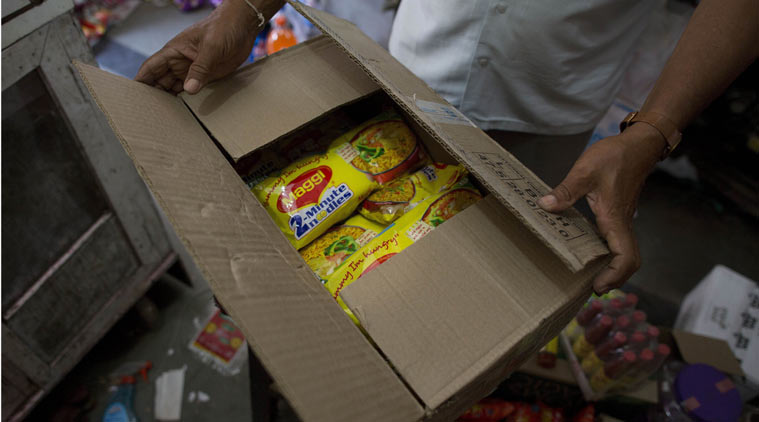The Maggi verdict could be bad news for FSSAI. Here’s why
If Maggi is cleared by the court ordered test in accredited labs, Nestle can file a defamation suit against the food regulator and ask for damages which is easier said than done.
 If Maggi is cleared by the court ordered test in accredited labs, Nestle can file a defamation suit against the food regulator and ask for damages which is easier said than done. (Source: PTI)
If Maggi is cleared by the court ordered test in accredited labs, Nestle can file a defamation suit against the food regulator and ask for damages which is easier said than done. (Source: PTI)
The Bombay High Court’s verdict on Thursday lifting the food regulator’s ban on Maggi has again highlighted the obvious: we need to standardise the current food testing procedure in the country.
Coming down hard on India’s food regulator, the Bombay High Court said the Food and Safety Standards Authority of India (FSSAI) had acted in an “arbitrary” manner and did not follow the principles of natural justice when it banned the nine variants of Maggi noodles manufactured by food giant Nestle India. Simply put, the food regulator was in a haste to ban the product and didn’t give Nestle a fair hearing before it ordered the withdrawal of Maggi from grocery stores.
To not follow the principles of natural justice is a poor reflection on India’s food regulator. The regulator certainly ‘didn’t act judiciously,’ said legal expert Chaitanya Mehta, Partner at Dhruve Lilladher & Co.
[related-post]
Also, the court order will set a precedent for other such cases where a product has been banned by the food authority. Based on this high court order, companies and individuals will now file writ petitions in the court on the same lines asking for a retest or raising the question of principles of natural justice. Litigation will increase and these cases may throw up the deficiencies in the working of the food regulator.
In any case, food regulation is rife with problems in India due to multiplicity of procedures and archaic laws.
While there are laws on food testing, there is no uniform prescribed procedure for testing food samples. This is also the reason why food samples tested in one state can throw up totally different results from a sample tested in another state. All this while there is no dearth of accredited labs in the country.
The Bombay High Court order will weaken the class action suit filed by the government against Nestle India seeking Rs 640 crore in damages for alleged unfair trade practices, false labelling and misleading advertisements. The government can, however, appeal against Thursday’s high court verdict.
The ban on Maggi had dented Nestle India earnings. The FMCG company reported a standalone loss of Rs 64.40 crore for the June quarter — its first quarterly loss in over three decades.
The high court has directed the FSSAI to test samples of the product in three labs in Hyderabad, Mohali and Jaipur. The court said the samples should be analysed within six weeks and if tests prove that the lead content in the product is within permissible limits, Nestle India can resume manufacturing.
According to lawyers, if Maggi is cleared by the court ordered test in accredited labs, Nestle can file a defamation suit against the food regulator and ask for damages which is easier said than done.
- 01
- 02
- 03
- 04
- 05































